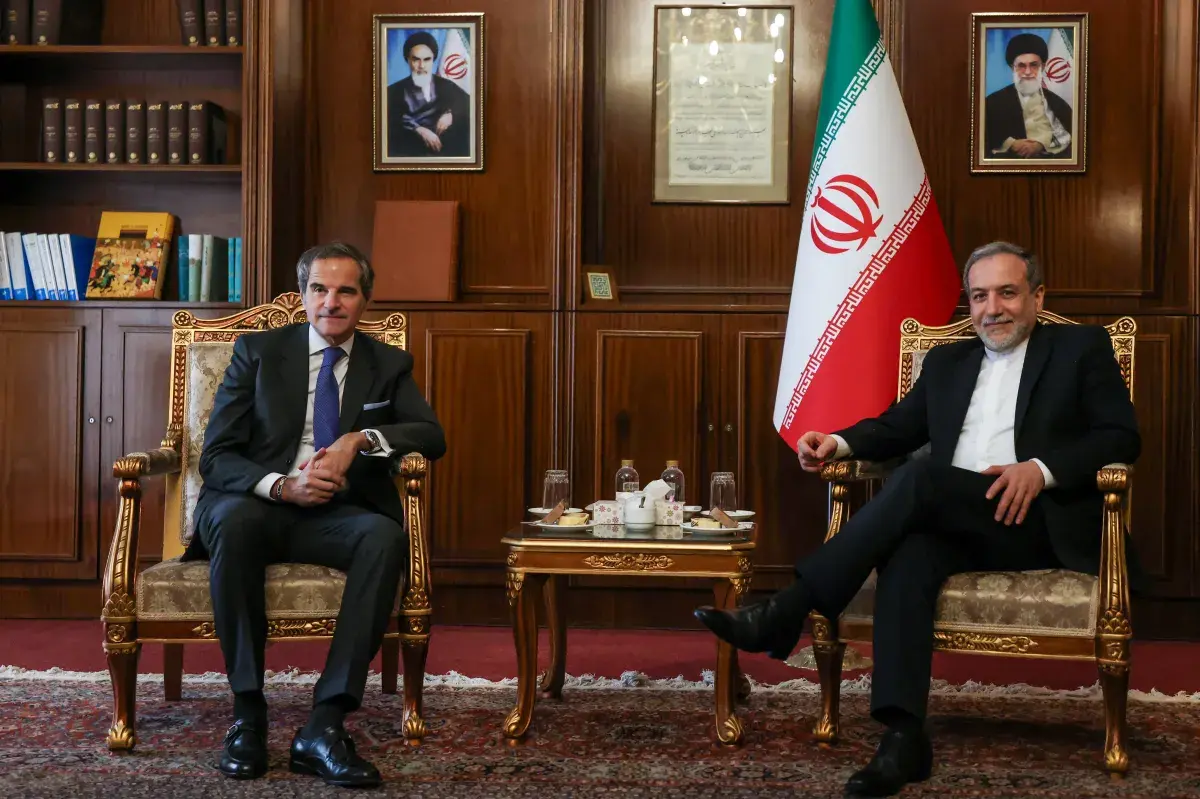
Iran’s Foreign Ministry said Sunday that snapback sanctions have no legal standing and called on countries to ignore the newly imposed measures.
Why It Matters
Backed by the United States, Britain, France and Germany (E3) formally launched a 30-day process in August to reimpose United Nations sanctions on Iran, citing Tehran’s violations of the 2015 nuclear accord and failure to provide credible commitments during talks that followed Israel and U.S. attacks on its nuclear facilities in June.
The reimposition of sanctions highlights a nuclear deadlock that is likely to hinder Western powers from monitoring Iran’s nuclear activities in the future, especially after Tehran has banned inspectors of the International Atomic Energy Agency (IAEA) from accessing sites.
Iran says its nuclear program is for civilian purposes.
What To Know
The United Nations reimposed sanctions and other restrictions, concluding an initiated snapback process. The embargoes are designed to address Iran’s nuclear and regional threats, according to the U.S. State Department.
France, Germany and the United Kingdom welcomed the reinstatement and urged Iran to fully abide by the resolutions.
“The Islamic Republic of Iran rejects the claim by the three European countries and the U.S. regarding the reinstatement of past resolutions that were terminated under Resolution 2231 in 2015,” Iran’s Foreign Ministry said in a statement, adding that “all countries must refrain from recognizing this unlawful situation.”
The move invoked the so-called “snapback” mechanism, a provision of the deal that allows participants to restore sanctions without a Security Council vote, that was previously lifted under the 2015 Joint Comprehensive Plan of Action (JCPOA).
On Friday, the U.N. Security Council voted against an effort by China and Russia to extend sanctions relief to Iran for six months under the JCPOA, which officially expires on October 18. President Donald Trump unilaterally withdrew from the agreement during his first term.
The restored sanctions require Tehran to suspend uranium enrichment, ban ballistic missile development, block conventional arms imports, reimpose travel bans and asset freezes on listed individuals and allow the seizure of weapons shipments to state or non-state actors, according to the State Department.
In a recent speech, Iranian Supreme Leader Ayatollah Ali Khamenei rejected U.S. demands that Tehran abandon uranium enrichment and dismissed U.S. criticism of its missile program.
What People Are Saying
Iran’s Foreign Ministry posted a statement on X: “The three European countries, under U.S. pressure and provocation, initiated the so-called #SnapbackMechanism despite their own persistent and significant failure to fulfill JCPOA commitments, amounting to a “gross non-performance,” and have exploited the dispute resolution process…Like the U.S., the European parties have acted in bad faith.”
The foreign ministers of France, Germany and the United Kingdom said in a joint statement Sunday: “We urge Iran to refrain from any escalatory action and to return to compliance with its legally binding safeguards obligations. The E3 will continue to work with all parties toward a new diplomatic solution to ensure Iran never gets a nuclear weapon.”
U.S. State Department issued a statement Saturday: “The Security Council’s decision on September 19—reaffirmed on September 26—to restore these restrictions sends a clear message: the world will not acquiesce to threats and half measures—and Tehran will be held to account.”
What Happens Next
It remains to be seen how Iran will respond to U.S. and Western claims that diplomacy remains on the table despite ongoing sanctions.



